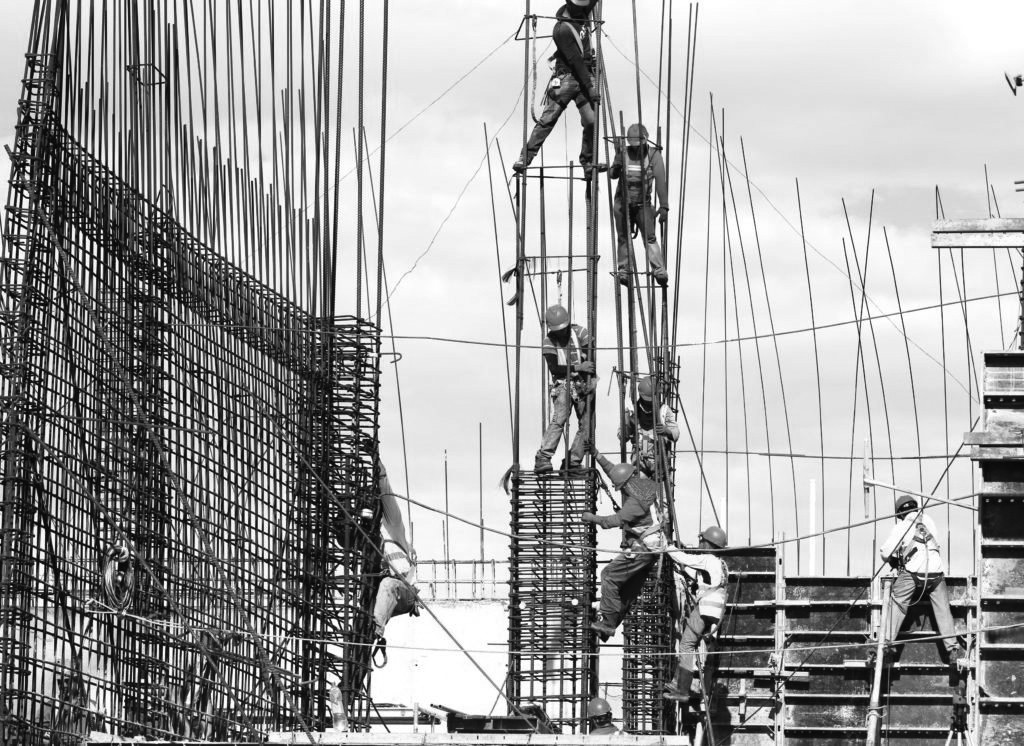
The quickfire guide to construction site safety
January 4th, 2019 By MarketingConstruction businesses, perhaps more than anyone, need watertight health and safety procedures. In a report published by the Health and Safety Executive, it was revealed that in 2017/18, there were 144 fatalities in UK workplaces. Accidents and injuries are mostly preventable, and all workers should strive to minimise these in every organisation. There are a number of basic steps you need to complete before onsite work can begin, including implementing ISO 45001 in your workplace. Here is a complete and quick overview of what you need to know,
Preparation
Before any procedures are implemented, you must organise the job to ensure any risks are controlled and monitored. Working conditions must be thoroughly evaluated and changes to the site at each unique stage of the job must be accounted for.
Set up
By addressing health and safety issues prior to the start of work, you will develop a purpose-built site that will actively aid construction site health and safety. The Health and Safety Executive identifies the following elements of a site as critical as part of best health and safety practice:
- Safe access
- Clear site boundaries
- Welfare facilities
- Storage and waste areas
- Good lighting
- Emergency response
- First aid
Beginning work
Following safe systems of work must be prioritised from the start of the project, and this can be fortified through competent training. Members of the public should also not be at risk because of your construction site. Schedule regular inspections and reports and keep vigilant records of any incidents that occur.
Physical hazards
There are a number of situations that can lead to accidents and injuries if not adequately controlled, including:
- Working at a height
- Site traffic and mobile plant (moving or overturning vehicles)
- Movement of goods
- Excavation
- Demolition and dismantling
- Working with electrical systems
Occupational health
As someone responsible for the health and safety of your organisation, it’s important to remember that hazards are not only limited to injury. Occupational health must also be considered, and needs to cover illnesses such as:
- Musculoskeletal problems
- Hand-arm vibration syndrome
- Dermatitis
- Tinnitus or deafness
- Asbestos-induced diseases
Legality
There are many acts and regulations surrounding health and safety at work, and it’s up to you to research which ones you need to follow when planning a construction site job. For example, The Health and Safety at Work Act 1974 legally protects all workers as well as members of the public and states that all workplaces must have a health and safety policy. On the other hand, the Management of Health and Safety at Work Regulations 1999 sets out a requirement for health and safety basics including planning, control, organisation, monitoring and review as well as actions such as risk assessment and training. Other laws include:
- The Construction (Design and Management) Regulations 1994
- The Construction (Health, Safety and Welfare) Regulations 1996
- The Control of Substances Hazardous to Health Regulations 2002
Your site will be subject to inspection where auditors and evaluators will measure your site against the requirements of these acts and regulations.
Employee responsibility
While management is responsible for implementation of construction site safety, all employees have a duty to comply and any hazards must be reported as soon as they are identified.
ISO 45001 certification
ISO 45001 is the new international certification that recognises best practice for health and safety standards. This certification prioritises employee safety, makes room for better managerial oversight and can lower insurance premiums. ISO 45001 auditors will give you assurance that your organisation is compliant and any risks are minimised.

Contact Us
For a free Quotation or Remote presentation by an ISO Specialist, contact us today!
IMSM Ltd Head Office
The Gig House
Oxford Street
Malmesbury
Wiltshire
SN16 9AX